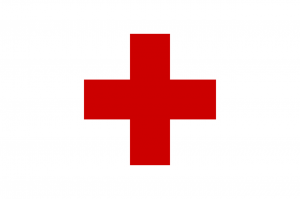At PatientTalk we thought it would be useful to share these with our readers.
Are the Ebola outbreaks in Nigeria and Senegal over?
Not quite yet.
If the active surveillance for new cases that is currently in place continues, and no new cases are detected, WHO will declare the end of the outbreak of Ebola virus disease in Senegal on Friday 17 October. Likewise, Nigeria is expected to have passed through the requisite 42 days, with active surveillance for new cases in place and none detected, on Monday 20 October.
For Nigeria, WHO confirms that tracing of people known to have contact with an Ebola patient reached 100% in Lagos and 98% in Port Harcourt. In a piece of world-class epidemiological detective work, all confirmed cases in Nigeria were eventually linked back to the Liberian air traveller who introduced the virus into the country on 20 July.
The anticipated declaration by WHO that the outbreaks in these 2 countries are over will give the world some welcome news in an epidemic that elsewhere remains out of control in 3 West African nations.
In Guinea, Liberia, and Sierra Leone, new cases continue to explode in areas that looked like they were coming under control. An unusual characteristic of this epidemic is a persistent cyclical pattern of gradual dips in the number of new cases, followed by sudden flare-ups. WHO epidemiologists see no signs that the outbreaks in any of these 3 countries are coming under control.
How does WHO declare the end of an Ebola outbreak?
A WHO subcommittee on surveillance, epidemiology, and laboratory testing is responsible for establishing the date of the end of an Ebola outbreak.
The date is fixed according to rigorous epidemiological criteria that include the date when the last case with a high-risk exposure completes 21 days of close medical monitoring and tests negative for the virus.
According to WHO recommendations, health care workers who have attended patients or cleaned their rooms should be considered as “close contacts” and monitored for 21 days after the last exposure, even if their contact with a patient occurred when they were fully protected by wearing personal protective equipment.
For health care workers, the date of the “last infectious contact” is the day when the last patient in a health facility tests negative using a real-time reverse-transcriptase polymerase chain reaction (RT-PCR) test.
For WHO to declare an Ebola outbreak over, a country must pass through 42 days, with active surveillance demonstrably in place, supported by good diagnostic capacity, and with no new cases detected. Active surveillance is essential to detect chains of transmission that might otherwise remain hidden.
Incubation period
The period of 42 days, with active case-finding in place, is twice the maximum incubation period for Ebola virus disease and is considered by WHO as sufficient to generate confidence in a declaration that an Ebola outbreak has ended.
Recent studies conducted in West Africa have demonstrated that 95% of confirmed cases have an incubation period in the range of 1 to 21 days; 98% have an incubation period that falls within the 1 to 42 day interval. WHO is therefore confident that detection of no new cases, with active surveillance in place, throughout this 42-day period means that an Ebola outbreak is indeed over.
The announcement that the outbreaks are over, in line with the dates fixed by the subcommittee on surveillance, epidemiology, and laboratory testing, is made by the governments of the affected countries in close collaboration with WHO and its international partners.
WHO recommendations for testing for Ebola virus disease and confirming a case
WHO is alarmed by media reports of suspected Ebola cases imported into new countries that are said, by government officials or ministries of health, to be discarded as “negative” within hours after the suspected case enters the country.
Such rapid determination of infection status is impossible, casting grave doubts on some of the official information that is being communicated to the public and the media.
• For early detection of Ebola virus in suspected or probable cases, detection of viral ribonucleic acid (RNA) or viral antigen are the recommended tests.
• Laboratory-confirmed cases must test positive for the presence of the Ebola virus, either by detection of viral RNA by RT-PCR, and/or by detection of Ebola antigen by a specific Antigen detection test, and/or by detection of immunoglobulin M (IgM) antibodies directed against Ebola.
• Two negative RT-PCR test results, at least 48 hours apart, are required for a clinically asymptomatic patient to be discharged from hospital, or for a suspected Ebola case to be discarded as testing negative for the virus.
• Laboratory results should be communicated to WHO as quickly as possible, in addition to reporting under the requirements and within the timelines set out in the International Health Regulations, which are administered by WHO.
WHO recommends that the first 25 positive cases and 50 negative specimens detected by a country without a recognized national reference viral haemorrhagic fever laboratory should be sent for secondary confirmatory testing to a WHO collaborating centre, designed as specialized in the safe detection (at biosafety level IV) of viral haemorrhagic fevers.
Similarly, for countries with a national reference laboratory for viral haemorrhagic fevers, the initial positive cases should also be sent to a WHO collaborating centre for confirmation.
If results are concordant, laboratory results reported from the national reference laboratory would be accepted by WHO.
• For more information read WHO recommendations on laboratory guidance for the diagnosis of Ebola virus disease

